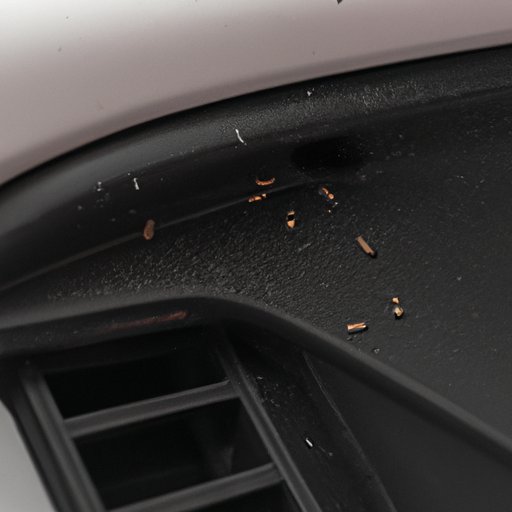
Introduction
Do you find yourself struggling with ants in your car? You’re not alone. Ants are sneaky creatures that can find their way into even the most secure vehicles. Ants are not only annoying, but they can also damage the interior of your car. This article will provide you with tips and tricks on how to get ants out of your car and prevent them from coming back.
Identifying the Source of the Ants
The first step in getting rid of ants in your car is to identify the source of the problem. Ants are not always easy to spot, but there are some signs that you should look out for. These signs include seeing ants crawling around your car, finding ant nests on the ground outside your car or noticing food crumbs or other debris that attract ants.
Once you’ve identified where the ants are coming from, it’s important to remove all sources of food and crumbs from your car. Ants are attracted to sugary and fatty foods, so make sure to remove any leftover food as soon as possible.
Cleaning the Affected Area
Cleaning the affected area is the next step in getting rid of ants in your car. Begin by vacuuming the interior of your car, paying special attention to the areas where you’ve seen ants. After vacuuming, clean the area with soap and water. Be sure to clean the carpets, floor mats, seats, and trunk.
Using a steam cleaner is an effective way to kill ants and remove the bacteria left by their bodies. Make sure to avoid any area that is sensitive to high heat. Additionally, ants are sensitive to strong smells, so using an essential oil like peppermint or eucalyptus can help to repel them. You can mix a few drops of essential oil with water in a spray bottle and mist your car’s interior.
Finally, after cleaning your car, make sure to properly dispose of any debris or leftover food that could attract ants in the future.
Using Ant Traps or Sprays
If you’ve tried cleaning your car and removing all food debris, but the ants continue to persist, you might need to use ant traps or sprays. The best type of ant traps or sprays for a car are those designed specifically for cars.
Ant traps release a chemical odor that attracts ants, and once the ants enter the trap, they’ll carry the bait back to their colony, eventually eliminating the colony. It’s essential to read the instructions on the trap and place it where you’ve seen the most ants in your car.
Ant sprays, on the other hand, work to kill ants on contact. You should spray it directly on the ants and their trails, making sure to follow the instructions carefully to ensure safety.
Maintenance and Prevention
Once you’ve got rid of the ants in your car, it’s important to take preventative measures to make sure they do not return. Maintaining a clean car, free of any spills or food crumbs, is the best method. Avoid eating or drinking in your car while driving.
Additionally, parking your car in a shaded area and keeping the windows closed can also help prevent ants from entering your car. If you’re going to leave your car parked for an extended period, consider using an ant repellant.
Conclusion
Getting rid of ants in a car can take some effort, but it’s essential to keep your car safe and free from any damage resulting from an ant infestation. Identifying the source of the ants, cleaning, using ant traps or sprays, and taking preventative measures are the most effective ways to handle an ant infestation. By following these tips, you can prevent ants from invading your car and causing you headaches.





